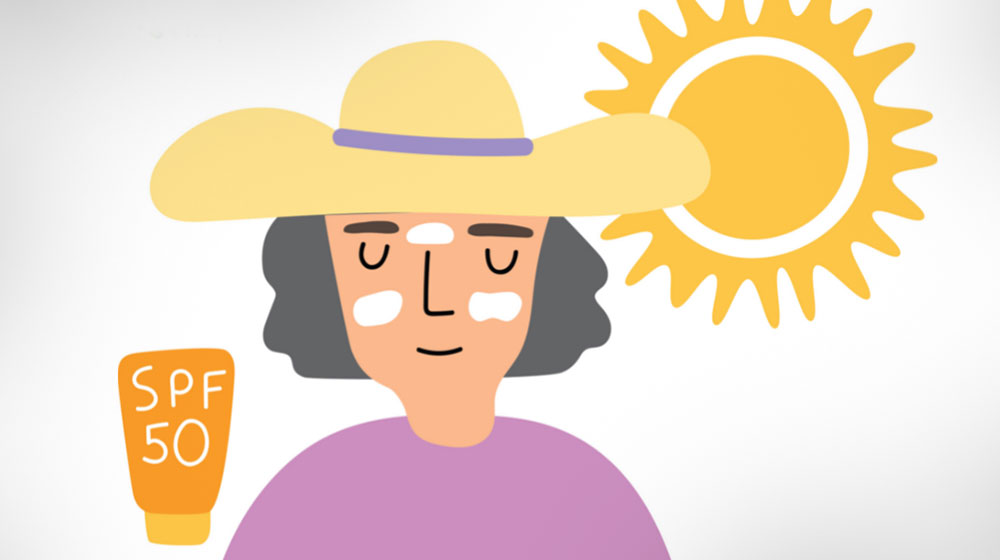Spending time outdoors is a great way to be physically active, reduce stress and get vitamin D. Too much sun, though, can cause skin cancer — the most common cancer in the U.S. Most skin cancers are caused by too much exposure to ultraviolet (UV) light. Protection from UV rays is important all year, not just during the summer. Even on an overcast day, up to 80% of the sun’s UV rays can get through the clouds, and they reflect off of surfaces like water, sand and snow.
Here are a few ways you can help protect your skin from the sun whenever you’re outdoors:
- Limit your time in the sun. The sun’s rays are the most intense from 10 a.m. to 2 p.m., so consider reducing your exposure during these hours.
- Find the shade. Try to stay in the shade under an umbrella, tree or other shelter as much as possible.
- Dress with care. Wear a hat that has a brim all the way around — one that shades your face, ears and the back of your neck. You may also want to wear long sleeves or long pants to protect from UV rays. If you’re at the beach and this type of clothing isn’t practical, at least throw on a T-shirt or a cover-up. Sun-protective clothing is also available to purchase at some stores.
- Wear sunglasses. Your eyes need protection, too. Remember to bring along a pair of sunglasses before enjoying a day in the sun. Look for sunglasses with a label indicating they protect you from UV rays.
- Use sunscreen. It’s very important to wear sunscreen every day, even if it’s cloudy. The CDC suggests using a sunscreen with a sun protection factor (SPF) value of 15 or higher that offers broad-spectrum protection from both ultraviolet A (UVA) and ultraviolet B (UVB) rays. One coat of sunscreen doesn’t last all day, so reapply every hour or more often if you’re sweating or swimming. Be sure to apply sunscreen evenly to all uncovered skin, including your lips, nose, ears, neck, hands and feet.
People of all skin colors are at risk for the harmful effects of UV rays, so always protect yourself. Be especially careful if you have:
- pale skin.
- blond, red or light brown hair.
- been treated for skin cancer.
- a family member who has had skin cancer.
Don’t forget to keep the kids safe in the sun, too. All of these tips are important for them, including hats and sunglasses. Safe sun habits should start young.
Sources: CDC; and FDA.
 English
English Espanol
Espanol 简体中文
简体中文 Tagalog
Tagalog հայերեն
հայերեն 한국인
한국인 Tiếng Việt
Tiếng Việt فارسی
فارسی русский
русский 日本
日本 عربي
عربي